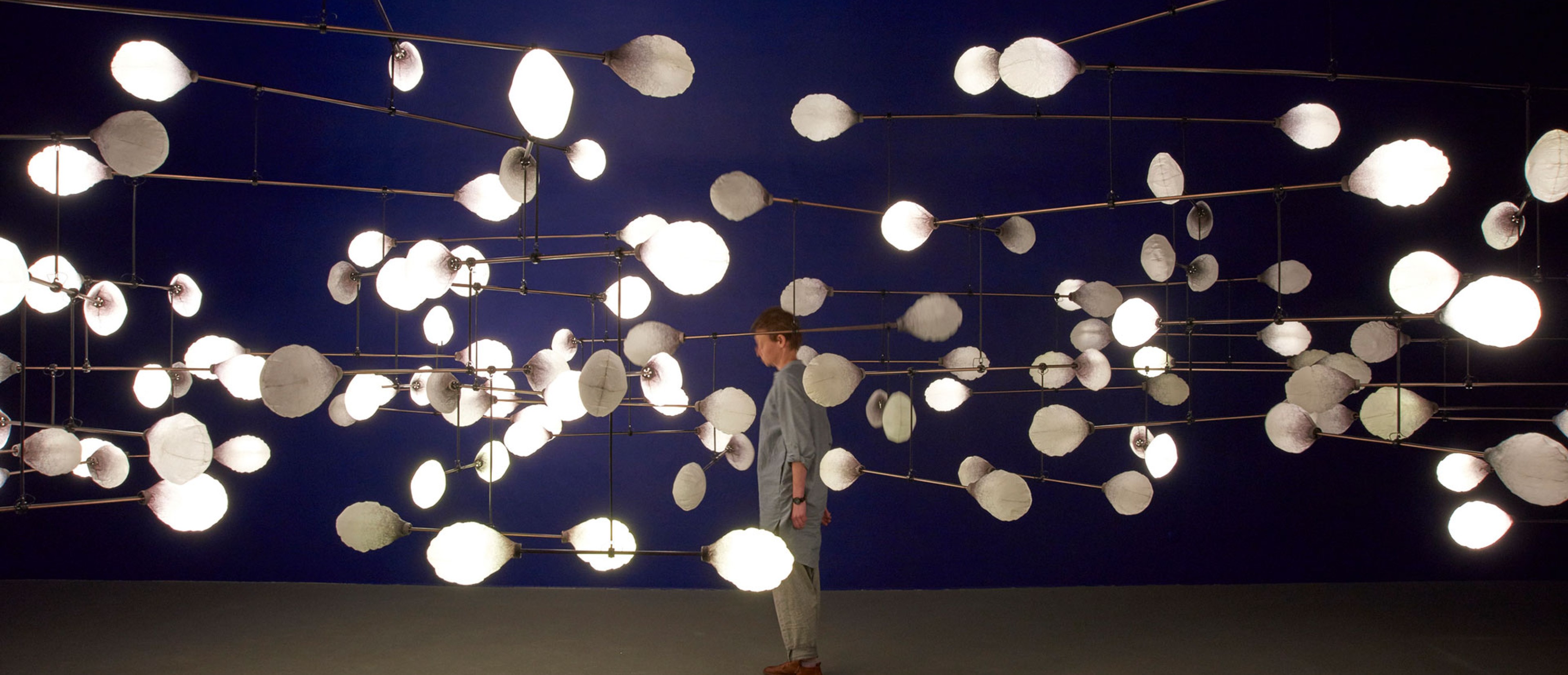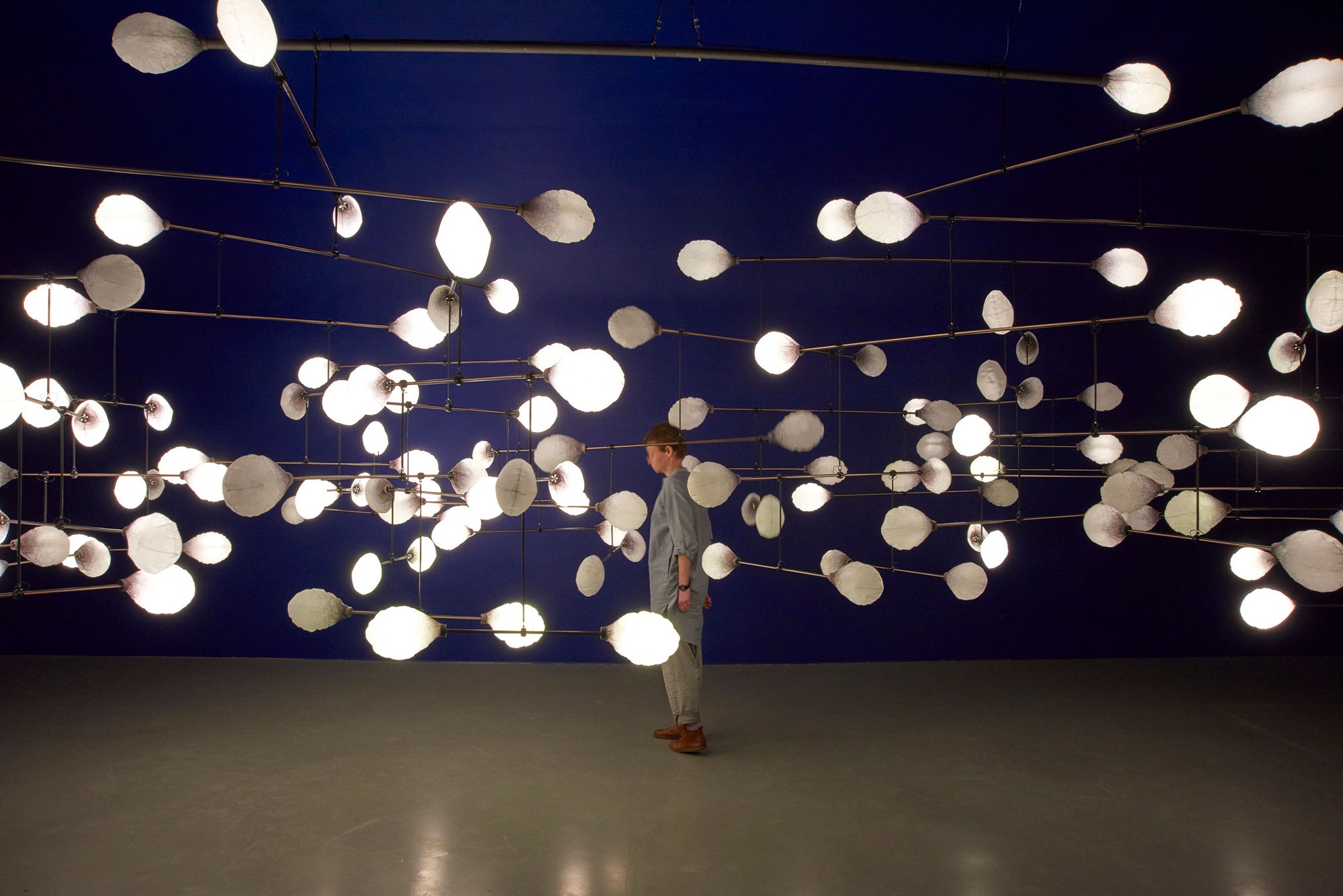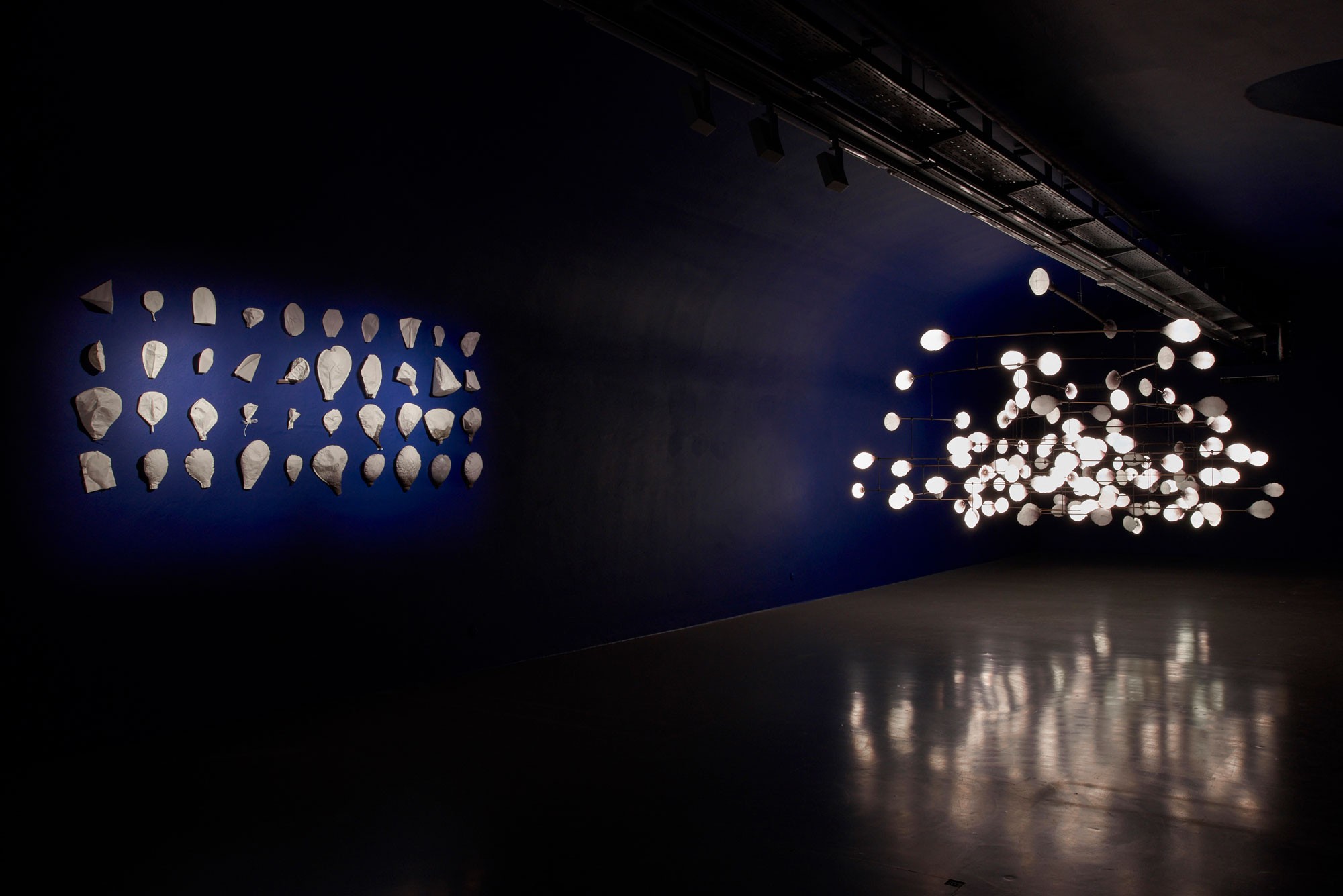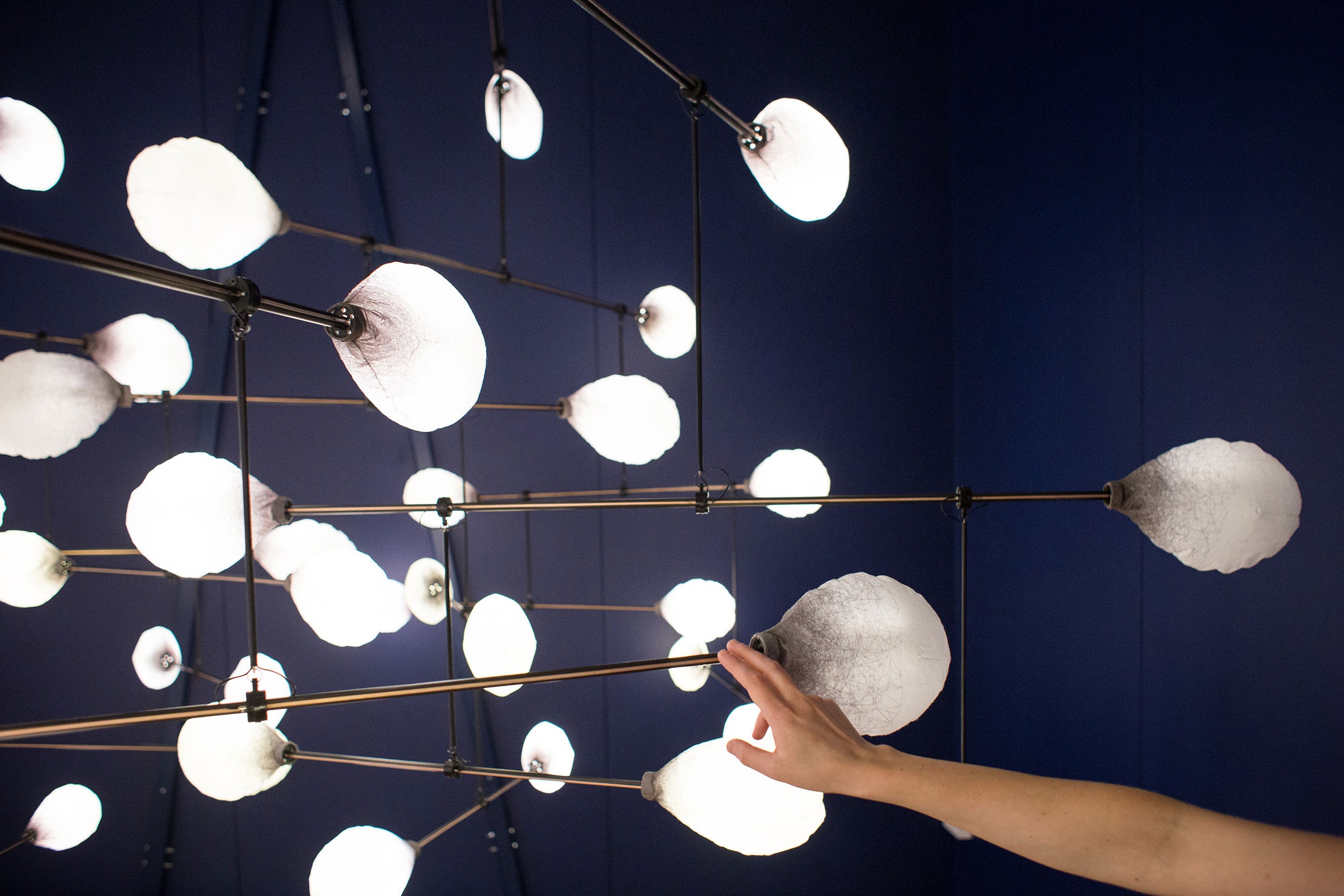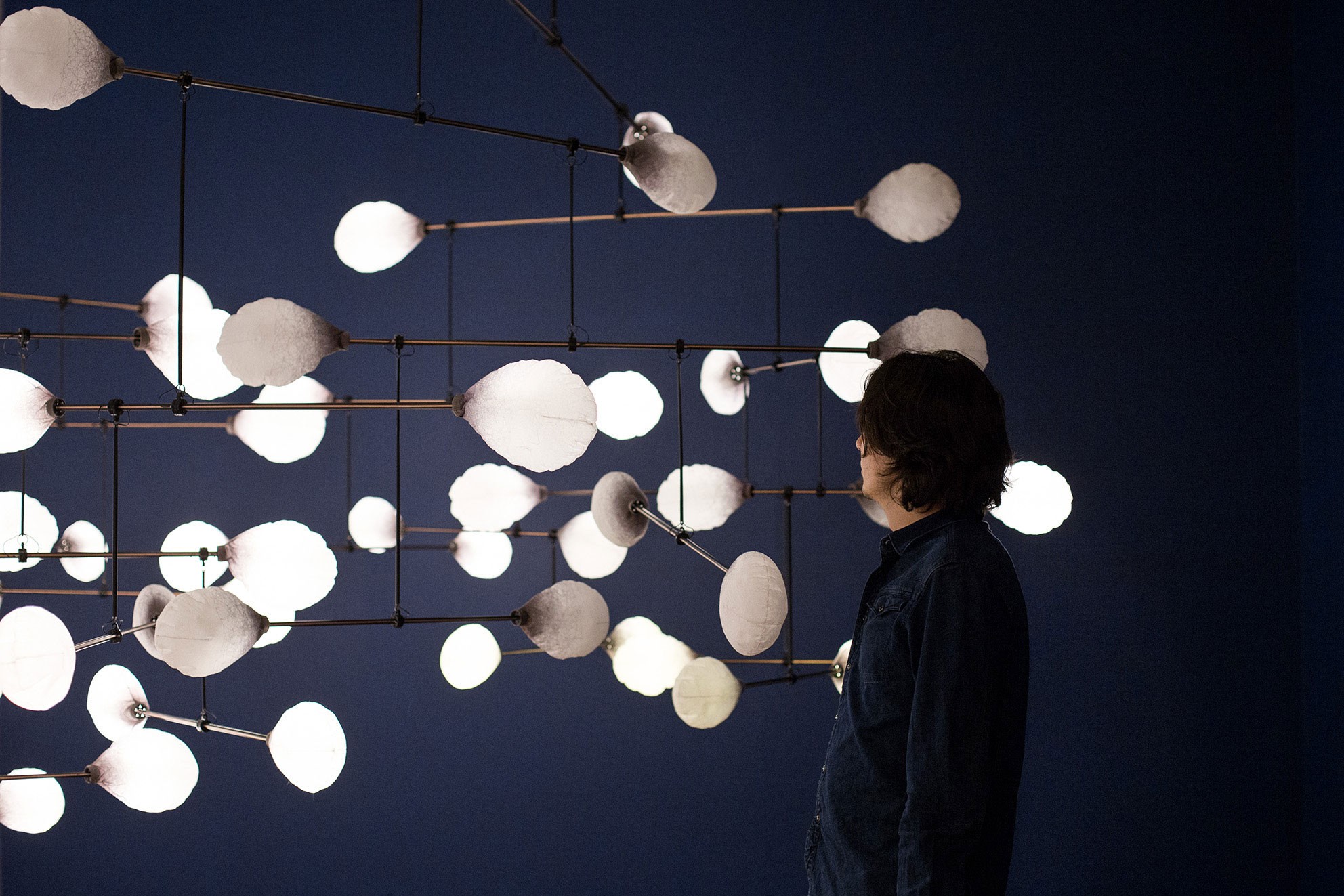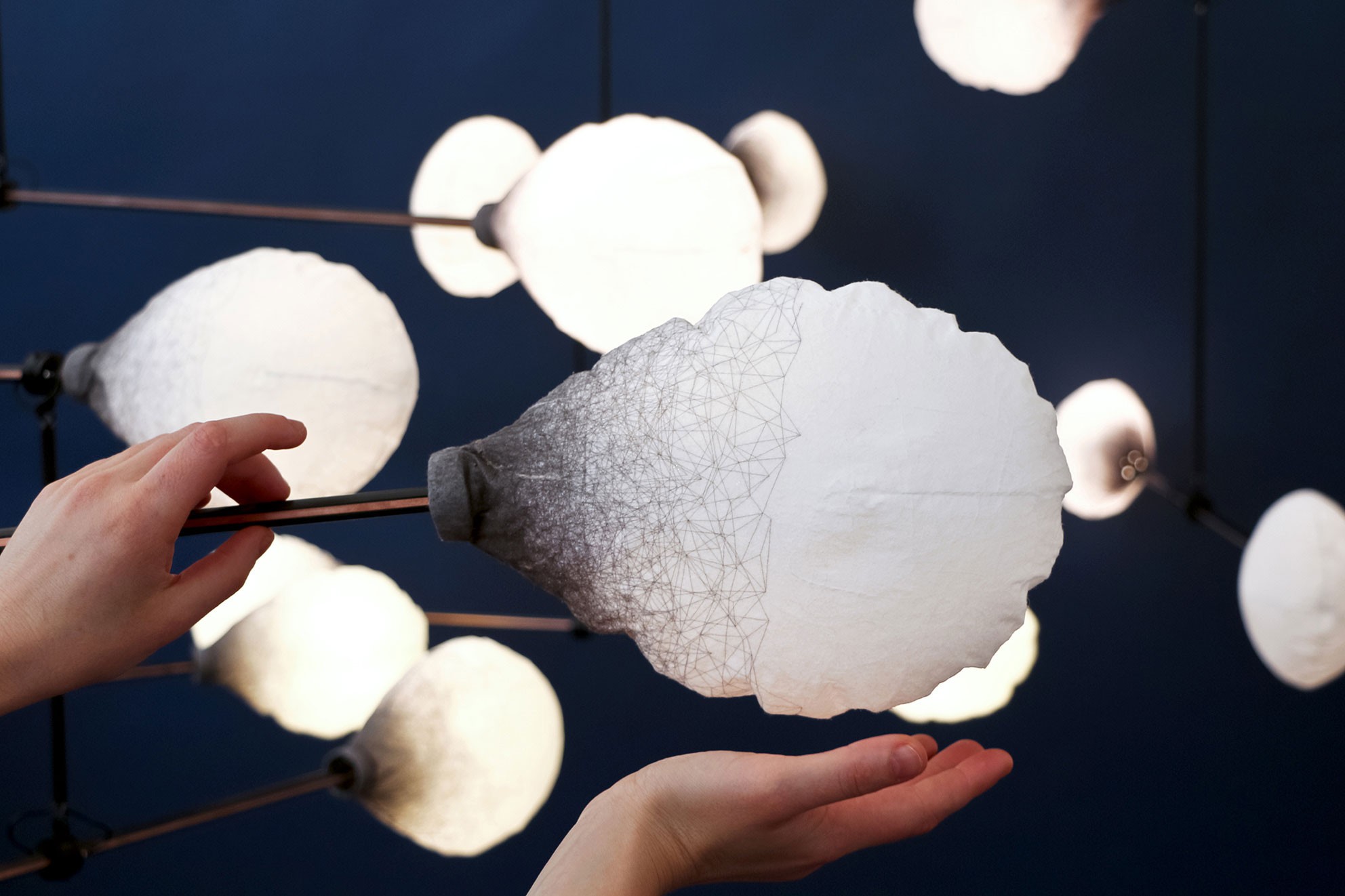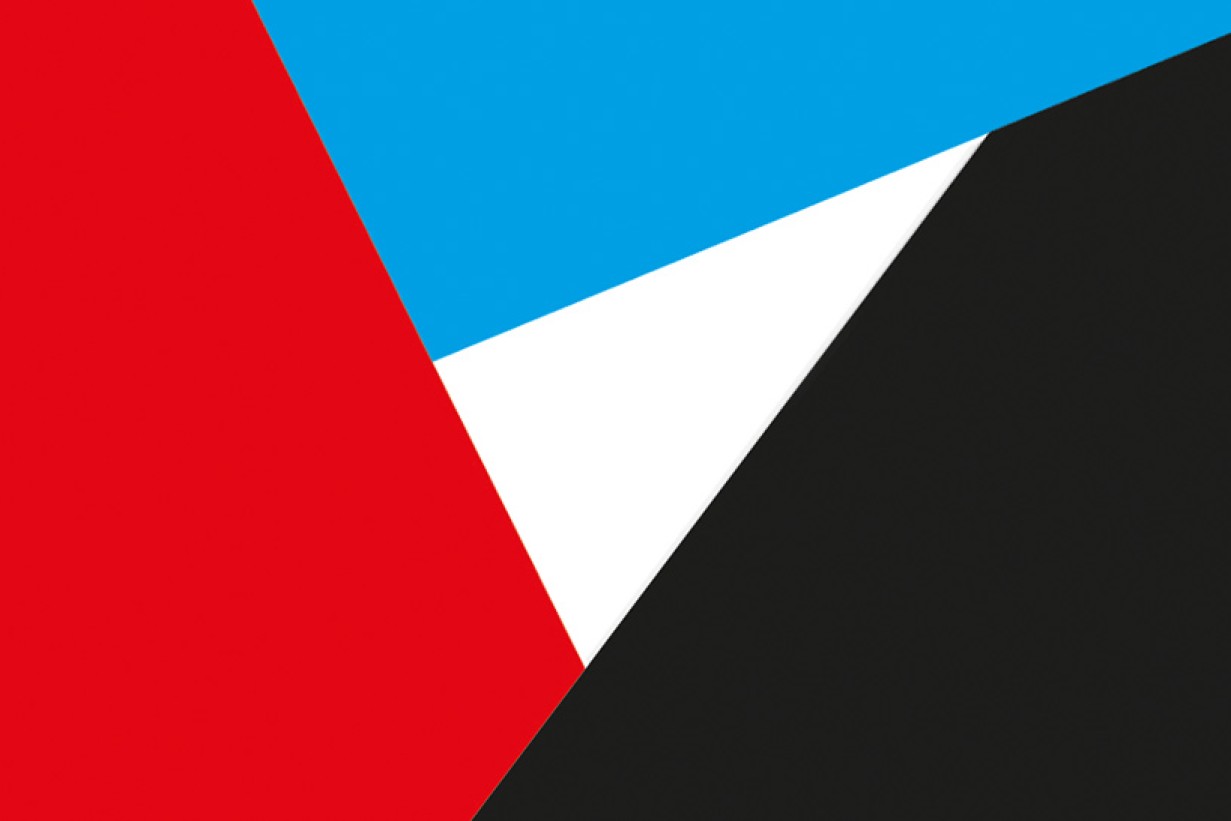Moreover, the poetic and playful nature of the installation relies on design’s essential and increasingly important role as an intercultural mediator. Abstracting the complex theme of utopia within an object addressing both people’s emotions and senses will open up various levels of access for visitors, regardless of age or background. Play and contemplation will facilitate identification with their own sociocultural ideas of utopia without patronizing visitors.
Designers: mischer’traxler studio (Katharina Mischer and Thomas Traxler)
LeveL – the fragile balance of utopia, developed by mischer’traxler studio in cooperation with the MAK (Curator: Thomas Geisler) as Austrian contribution for the London Design Biennale 2016, will be presented for the first time in Austria in the context of the VIENNA BIENNALE 2017. The Austrian contribution for the London Design Biennale 2016 was organized on behalf of the Arts and Culture Division of the Federal Chancellery of Austria by Austria Design Net, with support from the Austrian Economic Chambers and the Austrian Cultural Forum London.
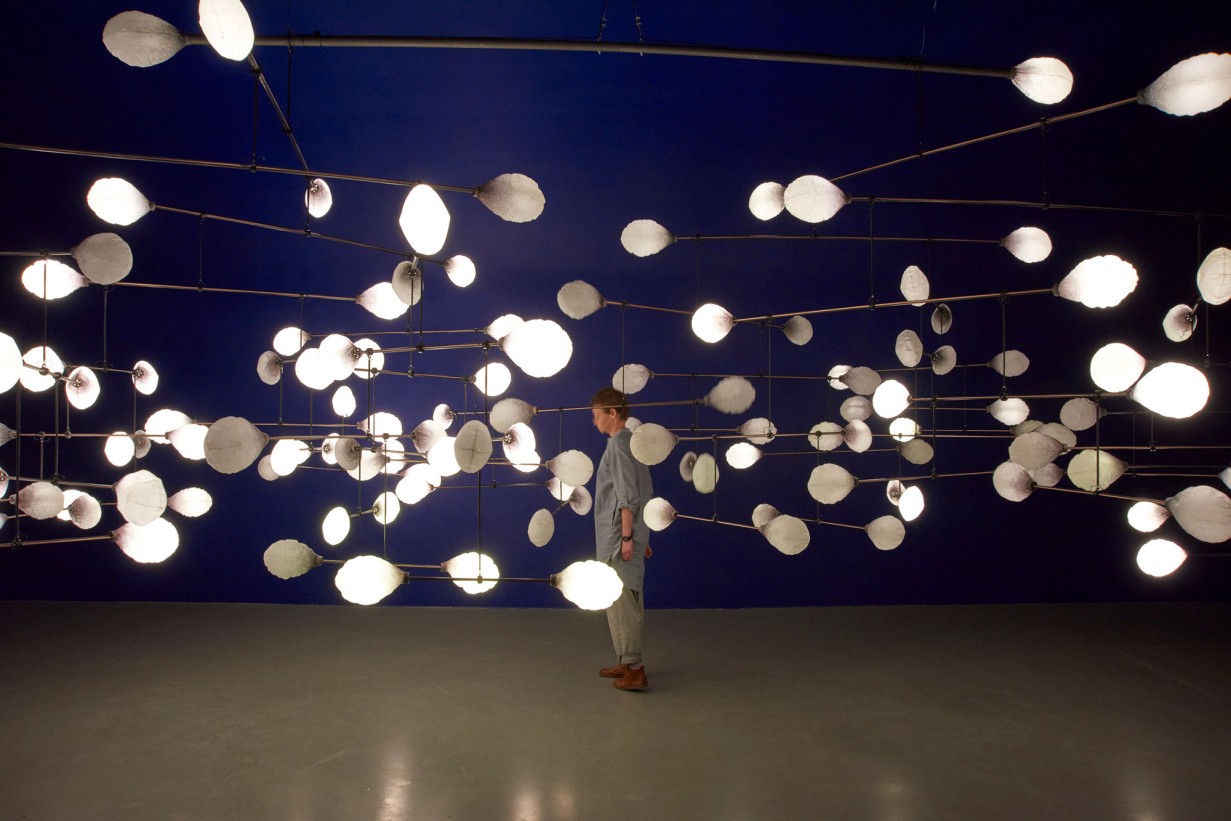
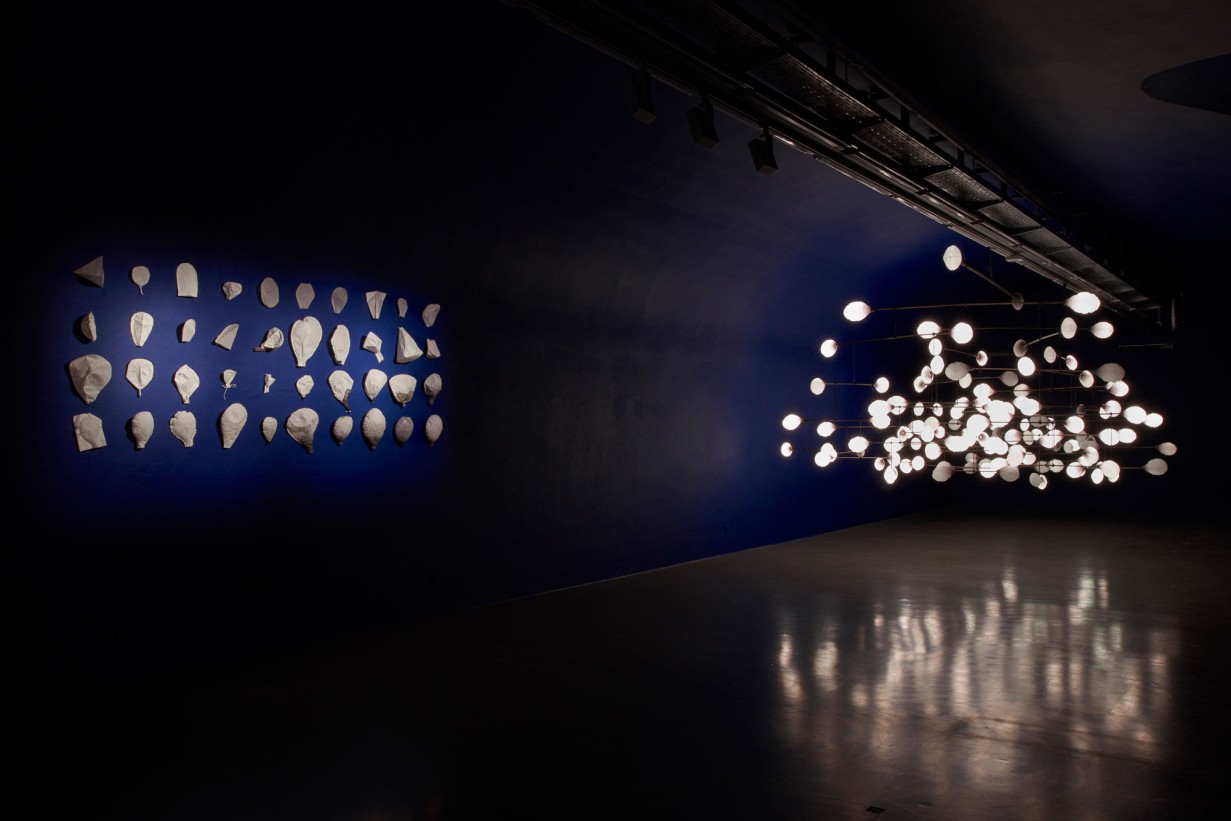
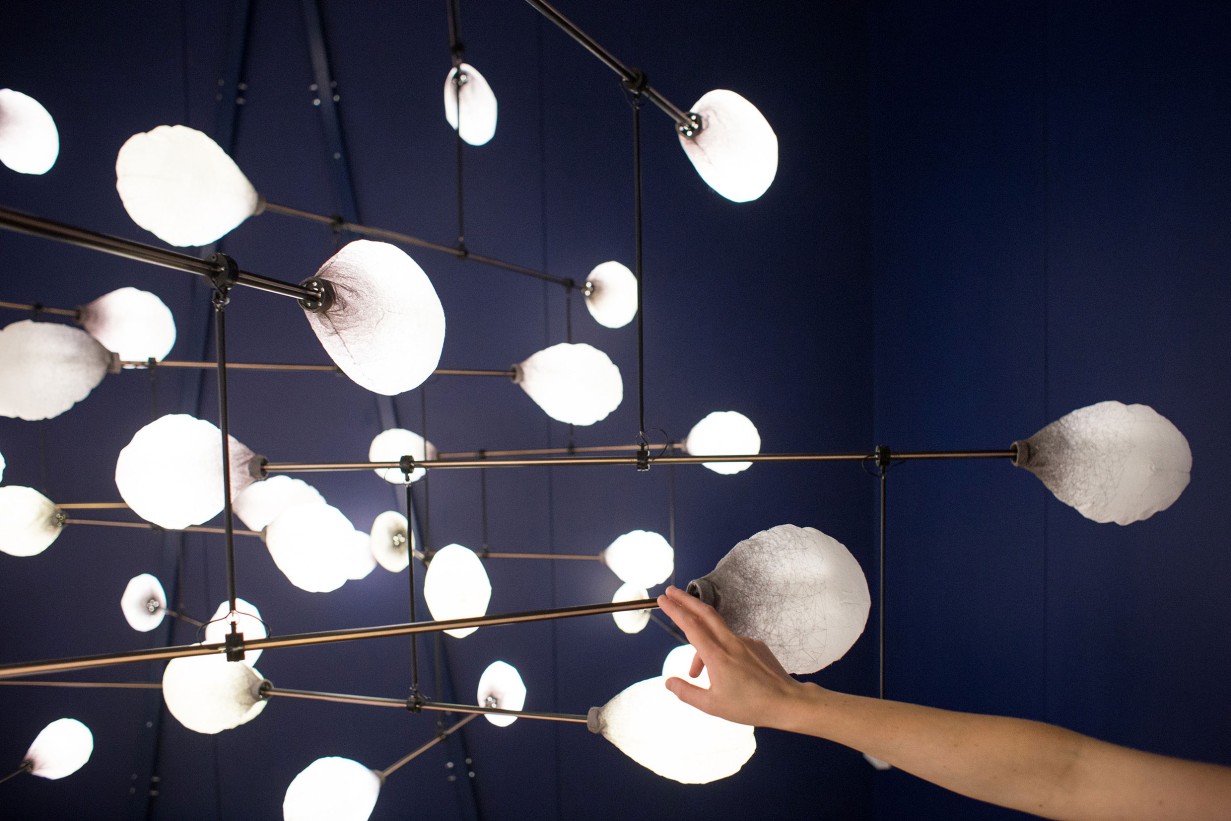
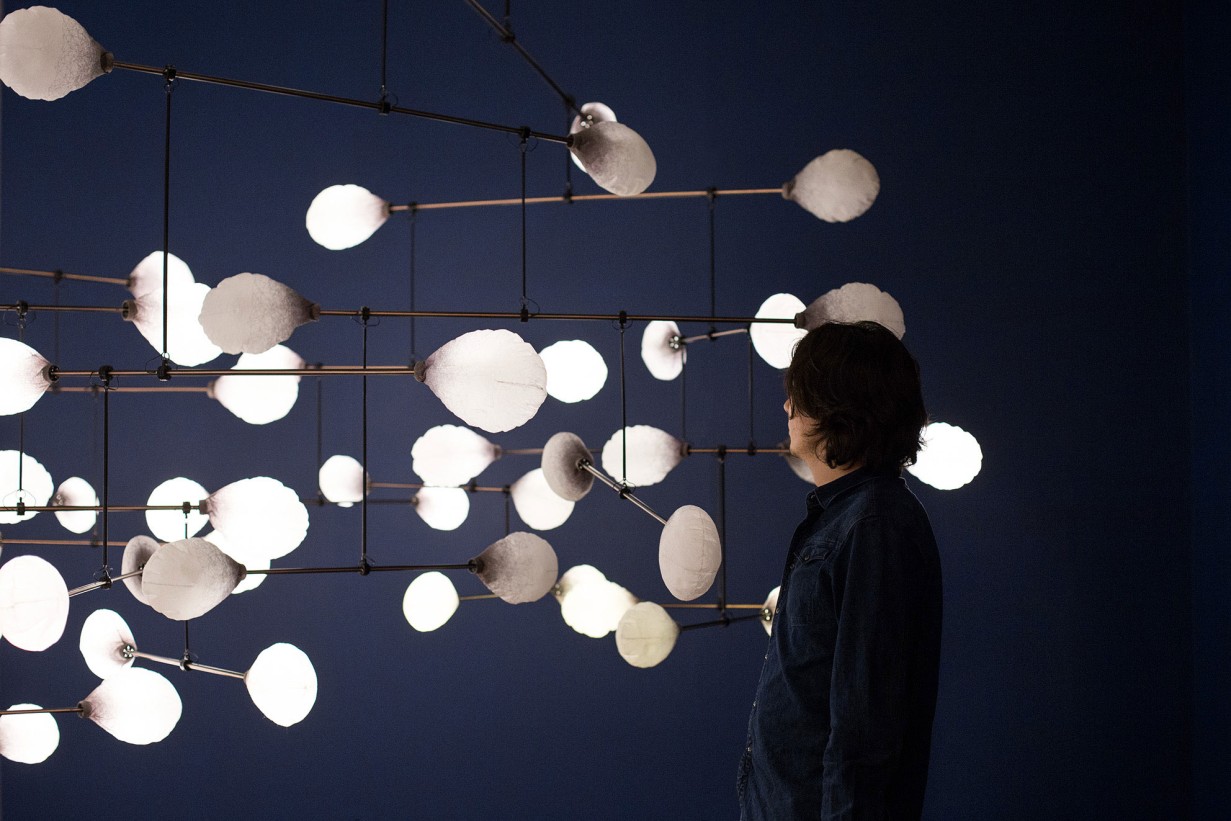
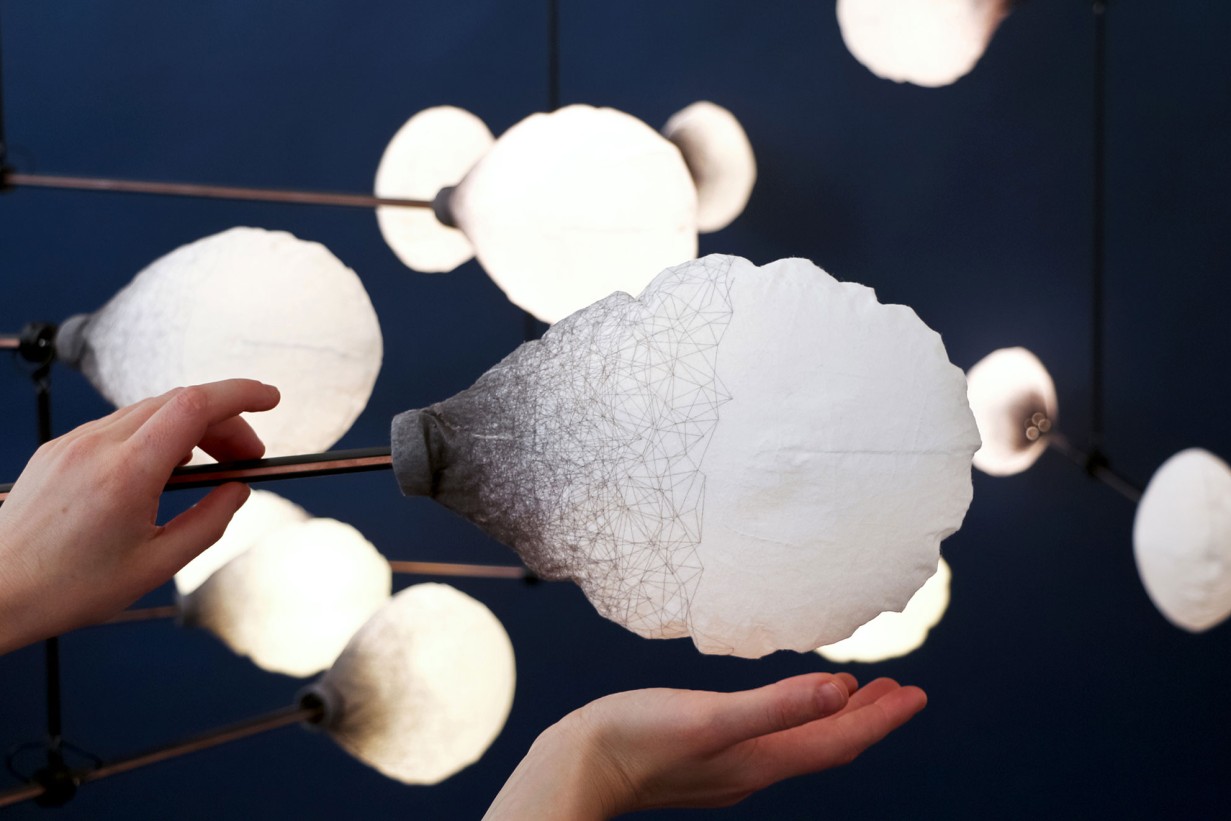
Concept and Production: mischer’traxler studio
Team: Elisa Polner, Maria Bauhofer, Theresa Ohm, Benedikt Steiner
Electro-technical Development: Simon Laburda / DKIA
Austrian commissioner for the London Design Biennale 2016: Thomas Geisler, MAK
Organization: Austria Design Net
Supporting Partner: Arts and Culture Division of the Federal Chancellery of Austria, Austrian Economic Chambers/go international, Austrian Cultural Forum London
viennabiennale.org/en
Supporting Program on the VIENNA BIENNALE 2017
Regular guided tours:
Overview tour – in German
Tue, 6–7 p.m., admission free, € 3,50 attendance fee
Sun, 10:30 a.m.–12 noon, MAK admission ticket + € 5 attendance fee
Overview tour – in Englisch
Sat, 2:30 p.m.–4 p.m., MAK admission ticket + € 5 attendance fee
Hello, Robot. Design between Human and Machine
Sun, 3–4 p.m., MAK admission ticket + € 3,50 attendance fee
Further tours and events at the VIENNA BIENNALE Calender at www.viennabiennale.org
Publications
VIENNA BIENNALE 2017 Guide
VIENNA BIENNALE 2017: Robots. Work. Our Future, edited by the MAK, German/English, 160 pages with numerous color illustrations, MAK Vienna/Verlag für moderne Kunst, Vienna 2017. Available at the MAK Design Shop and online at MAKdesignshop.at for € 9.80.
Hello, Robot. Design between Human and Machine
Catalog edited by Mateo Kries, Christoph Thun-Hohenstein, Amelie Klein; with contributions by Rosi Braidotti, Douglas Coupland, Anthony Dunne & Fiona Raby (Dunne & Raby), Christoph Engemann, Paul Feigelfeld, Gesche Joost, Amelie Klein, Carlo Ratti, Bruce Sterling, Marlies Wirth i.a.. Cover illustration: Christoph Niemann. Softcover, English, 328 pages, ca. 250 images, mainly in color. Available at the MAK Design Shop and online at MAKdesignshop.at for € 49,90.
Artificial Labor – e-flux
Artificial Labor is a collaboration between e-flux Architecture and the MAK, Vienna within the context of the VIENNA BIENNALE 2017: Robots. Work. Our Future.
